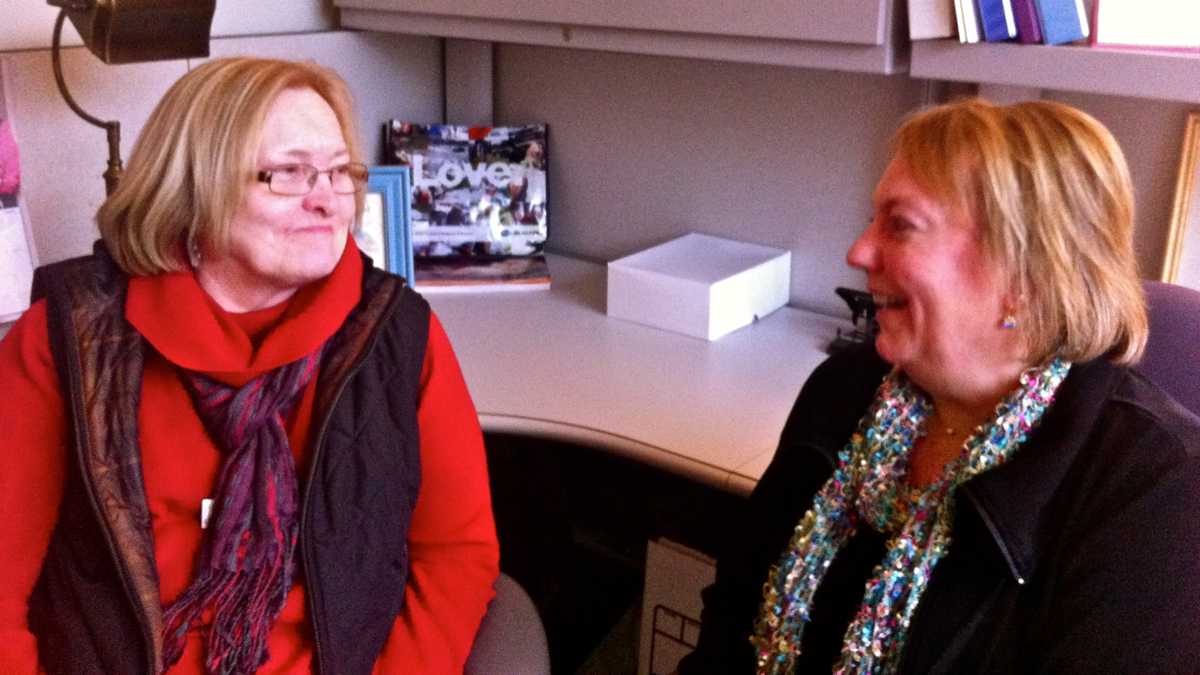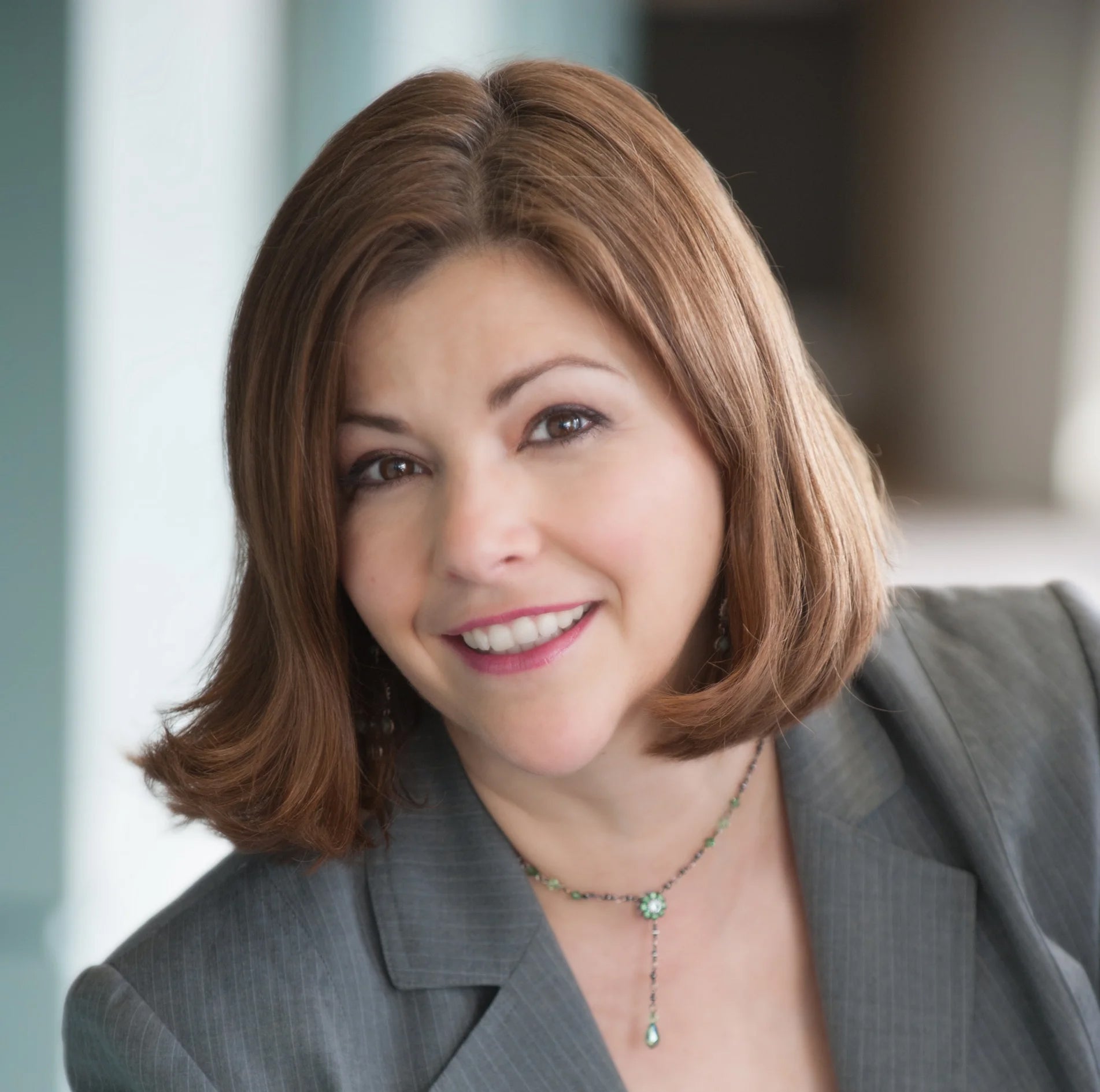Addressing the emotional burden of fighting cancer
Listen
Mary Donohue of Wilmington (left) comes to the Cancer Care Connection in Newark
Cancer patients often describe their treatment as a fierce battle against a life-threatening disease – and the only thing that matters is survival.
Cancer patients often describe their treatment as a fierce battle against a life-threatening disease – and the only thing that matters is survival, beating the cancer.
But, the everyday insanity of life doesn’t stop. Work schedules, car pools, homework, laundry piles, school plays, leaking pipes, overdue bills — all of that keeps coming. Combined with the existential angst of having a serious illness – the stress can become toxic – and have a negative impact on patient outcomes.
Treatment providers are doing more to address the emotional side effects of cancer these days – and to connect patients to resources when needed.
Mary Donahue calls herself a cancer veteran. At 33, she was diagnosed with chronic lymphocytic leukemia, a type of cancer that starts with cells in the bone marrow, and progresses from there. It’s treatable, but not curable. She also survived two bouts of breast cancer. She’s 67 now, and the more than three decades of living in the shadow of cancer have taken an emotional toll on her.
At first, it was the big fears that kept her awake at night. “I had a little boy, and it was… okay, what’s going to happen,” she recalled about the early stages of living with cancer.
These days, it’s more the constant wear and tear of her leukemia, which makes her very susceptible to infections, and changes her daily life. “Flu season is a scary time for me, I don’t go to the movies, I don’t go to church, I don’t go to stores.”
When she gets sick, even a little bit, she gets very anxious. “Because then I think – can I overcome this? Because technically, I could die of a cold.”
Donahue didn’t want to overburden her husband and close friends with her constant fears and challenges. Years of internalized worry, balancing her treatment and work schedules, finances, typical family issues – it all caught up with her.
“I ended up with this paralyzing depression, and it was my oncologist who said ‘I think you need to talk with somebody,'” she recalled.
That brought her to social worker Carol Deputy’s office. Deputy’s the clinical director of the Cancer Care Connection – an organization based in Newark, Delaware that provides counseling for people affected by cancer – to help them cope with the stress and anxiety.
“That emotion sometimes can paralyze someone, they are so worried about what might come that they can’t make a good decision for themselves,” said Deputy. “With counseling, what we are able to do is help them create the space to take a breath, talk about the options, and figure out what might be better.”
Dealing with the emotional impact of cancer has become part of care in a more formal way: since January of this year, cancer centers accredited by the American College of Surgeons’ commission on cancer have to screen patients for emotional stress – and refer them to counseling if needed.
This new rule comes a few years after an Institute of Medicine report on the emotional effects of cancer – which found that when those issues are addressed, patients do much better. “They follow through on appointments, they follow through on medical advice, and therefore, get a better outcome,” said Janet Teixeira, Executive Director of the Cancer Care Connection.
Mary Donahue has learned different coping techniques in her sessions with Carol Deputy and says it feels good to be able to pour her heart out, and discuss her feelings.
Physicians and mental health professionals work closely together at Philadelphia’s Fox Chase Cancer Center – and use a simple form to screen patients for stress and anxiety. “We actually ask them in a thermometer format, ‘how distressed are you feeling today, ’10 being the most distressed, 0 being the least,” explained psychiatrist Karen Mechanic.
Anything over a four raises red flags, and patients are referred to counseling.
On the form, patients are also asked to identify specific areas of distress – such as emotional or family issues, physical issues and so on.
“Every time I come to see Dr. Mechanic I get this distress form to complete, and I really think this is the best part of it,” said Mary LeBlanc, a breast cancer survivor who lives in Elkins Park.
“It gives Dr. Mechanic a good idea of where I’m coming from, am I going to cry, is it going to be a crisis, or am I just getting my kitchen redone,” she said.
Mechanic and her team also screen family members for stress – and provide counseling for them, as well, when needed.
WHYY is your source for fact-based, in-depth journalism and information. As a nonprofit organization, we rely on financial support from readers like you. Please give today.




